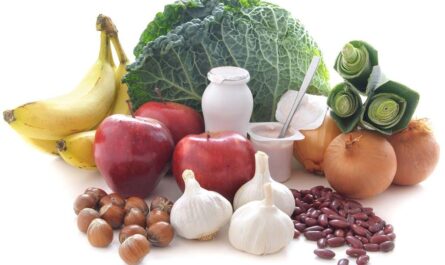While vitamins and minerals certainly play a role, there is another powerful group of plant chemicals that may provide even greater benefits – phytonutrients. Phytonutrients are naturally occurring compounds found in plant foods that help protect against disease and promote good health. As science continues to uncover new phytonutrients and their impressive properties, it is clear that making fruits and veggies a dietary staple makes excellent sense.
What are Phytonutrients?
Phytonutrients, also known as phytochemicals, are plant chemicals that are not considered essential nutrients but provide health promoting effects. They give fruits and vegetables their vibrant colors and distinct flavors and act as the plant’s defense system against threats like pollution, pests, and ultraviolet radiation. Over 5,000 distinct phytonutrients have been identified so far with new ones continually being discovered. Some common families of Phytonutrients include carotenoids, flavonoids, alkaloids, and organosulfides. Unlike vitamins and minerals which have distinct biochemical functions, phytonutrients act more broadly to reduce inflammation and oxidative stress throughout the body.
Health Benefits of Phytonutrients
Scientific research has linked higher intakes of phytonutrient-rich fruits and vegetables to reductions in the risk of many chronic diseases. Some of the top health benefits of phytonutrients include:
Cancer Prevention
– Phytonutrients aid cancer prevention in multiple ways such as reducing DNA damage, triggering cancer cell death, and inhibiting tumors from forming new blood vessels. Foods high in flavonoids, carotenoids, and indoles show protective effects against cancers of the breast, prostate, lung, and colon.
Heart Health
– Flavonoids and plant sterols help lower blood pressure and cholesterol levels while protecting LDL cholesterol from oxidizing. These effects significantly lower the risk of heart attacks and strokes. Berries, dark leafy greens, nuts, and citrus are heart-healthy options rich in beneficial phytonutrients.
Brain Health
– Anti-inflammatory flavonoids accumulate in the brain where they help ward off age-related mental decline. Phytonutrients may reduce the risk of dementia and Alzheimer’s disease. Good sources include blueberries, spinach, broccoli, and walnuts.
Anti-Aging Effects
– Phytonutrients are potent antioxidants that neutralize cell-damaging free radicals produced during cellular metabolism. Their protection from oxidative stress slows down the signs of aging like wrinkles and age spots while reducing age-related chronic conditions.
Immunity Support
– Certain Phytonutrients can stimulate the immune system and help the body better combat pathogens and reduce infection risk. Herbs and spices are great additions to boost immunity with phytonutrients like quercetin in onions and capsaicin in hot peppers.
Digestive Health
– Fiber-rich fruits and vegetables aid digestive regularity while plant phenols soothe the gastrointestinal tract. Allicin in garlic provides antimicrobial effects to maintain a balanced gut microbiome important for overall health.
Eye Health
– Lutein and zeaxanthin are carotenoid antioxidants found in high amounts in kale, spinach, and collard greens that help protect the eyes from sun damage and lower risks of cataracts and macular degeneration with age.
Skin Health
– Collagen production, skin elasticity, and protection from UV damage are supported by phytonutrients like the anthocyanins in berries. Diets rich in these plant polyphenols may reduce signs of premature skin aging.
Top Phytonutrient Food Choices
With so many benefits offered by these plant chemicals, it’s wise to make phytonutrient-dense options a regular part of one’s diet. Here are some top food choices and their primary phytonutrients:
– Berries (ellagic acid, anthocyanins, quercetin)
– Cruciferous Vegetables like Broccoli, Brussels Sprouts, Cabbage (indoles, sulforaphane)
– Leafy Greens like Spinach, Kale (lutein, zeaxanthin)
– Tomatoes (lycopene)
– Citrus fruits (hesperidin, naringenin)
– Garlic and Onions (allicin, quercetin)
– Soybeans and Legumes (isoflavones, saponins)
– Pomegranate and Acai (ellagic acid, anthocyanins)
– Walnuts and Flaxseeds (lignans, omega-3s)
– Turmeric and Ginger (curcumin, gingerol)
– Tea and Coffee (catechins, caffeic acid)
Making these fruits, veggies, herbs, and spices a habitual part of one’s diet is the easiest way to consistently obtain an array of phytonutrients and all their associated health blessings. By choosing a variety daily, one can support whole-body wellness for years to come.
Phytonutrients represent an overlooked group of powerful plant nutrients that aid disease prevention and optimize health in multiple ways. Benefitting from the phytonutrient bounty available through fruits, vegetables, herbs, spices, grains, teas, and more gives our bodies an upper hand against chronic illness and aging. By adopting dietary habits rich in these plant defense chemicals, we embrace nature’s formula for long-term well-being.
*Note:
1. Source: Coherent Market Insights, Public sources, Desk research
2. We have leveraged AI tools to mine information and compile it




